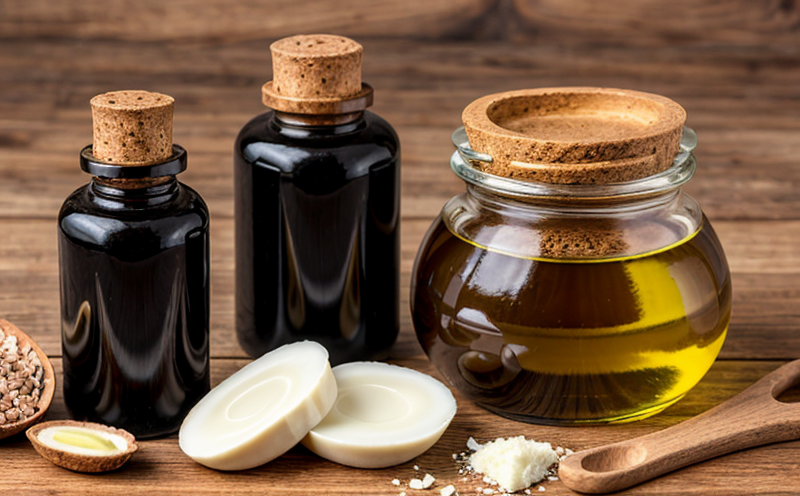Codex STAN 210 Codex Standard for Edible Vegetable Oils
The International Code of Standards for Edible Vegetable Oils (CODEX STAN 210) is a globally recognized standard that sets out the specifications and requirements for edible vegetable oils. This standard ensures that products meet international quality, safety, and labeling standards. It is particularly important in the food & feed testing sector as it helps to maintain consistency across borders.
Vegetable oils are widely used in various sectors including cooking oil, margarine, shortenings, and food manufacturing. The Codex STAN 210 standard provides clear guidelines for the production, labeling, and marketing of these products ensuring that consumers receive high-quality, safe, and transparently labeled edible vegetable oils.
The standard covers a range of parameters including physical properties (such as color, clarity), chemical composition (fatty acid profile), and safety aspects (preservatives, contaminants). Compliance with this standard is essential for companies aiming to meet international quality standards in their product offerings. Failure to adhere can result in non-compliance issues that may affect market access.
To ensure accurate compliance, laboratories must use state-of-the-art analytical techniques such as gas chromatography, infrared spectroscopy, and high-performance liquid chromatography (HPLC). These methods enable precise measurement of key components like linoleic acid content or the presence of harmful contaminants. This ensures that products meet international safety standards.
For those involved in quality management, compliance officers, R&D engineers, or procurement teams, understanding the intricacies of this standard is crucial for maintaining product integrity and ensuring market access. The Codex STAN 210 standard serves as a benchmark to which all parties in the supply chain must adhere.
The standard also provides guidance on labeling requirements which include information about the type of oil (e.g., sunflower, olive), its origin, processing methods employed during production, and any additives used. Proper labeling is essential for consumer awareness and trust. This transparency supports informed purchasing decisions by consumers who are increasingly concerned with nutritional content and sourcing.
Compliance with this standard can significantly enhance a company's reputation in the market, especially when dealing with international clients or suppliers. It demonstrates commitment to quality assurance practices that align closely with global trends towards healthier eating habits and sustainable practices.
Scope and Methodology
The scope of the Codex STAN 210 standard includes:
| Parameter | Description |
|---|---|
| Fatty Acid Composition | Detailed analysis of saturated, monounsaturated, and polyunsaturated fatty acids. |
| Free Fatty Acids (FFA) | Measurement to ensure adherence to specified limits for quality control purposes. |
| Saponification Value | An indicator used to determine the average chain length of fatty acids present in oils. |
| Iodine Number | Reflects unsaturation level which is crucial for determining appropriate usage conditions like frying temperature limits. |
| Peroxide Value (PV) | Indicates oxidative stability and freshness of the oil; higher values suggest rancidity or spoilage risks. |
The methodology involves multiple steps starting from sample collection, through preparation, analysis using appropriate instruments, and finally interpretation of results against predefined criteria set forth by CODEX. It is important to note that accurate sampling techniques are critical as they directly influence the accuracy of subsequent analyses.
For instance, during sample preparation, it's necessary to grind the sample into a fine powder if dealing with solid materials or ensure proper dilution for liquid samples before analysis begins. Once prepared, various analytical techniques come into play depending on what needs measuring; these include gravimetric methods for determining specific gravity and titrimetric analyses for assessing acidity levels.
The Codex STAN 210 standard also specifies permissible ranges within which results should fall to be considered compliant with the guidelines. These limits are based on extensive research conducted by experts in food science, nutrition, and chemistry who have considered factors such as health implications, environmental impact, consumer preferences, among others.
Benefits
- Increased Market Access: Compliance with Codex STAN 210 opens doors to international markets where stringent import regulations exist.
- Better Quality Control: By adhering strictly to the standard, producers can ensure consistent quality across different batches or production runs.
- Enhanced Reputation: Companies that meet these standards often gain a competitive edge due to their reputation for reliability and safety.
- Consumer Trust: Proper labeling according to the standard builds trust with consumers who want transparency regarding what they are consuming.
In addition, compliance helps avoid costly penalties associated with non-compliance as well as potential damage to brand image caused by recalls or withdrawals from shelves due to substandard products.
International Acceptance and Recognition
- Codex STAN 210 is widely accepted across different regions including Europe, Asia, Africa, North America, South America, and Oceania.
- This standard has been endorsed by numerous international organizations such as the World Health Organization (WHO), Food and Agriculture Organization of the United Nations (FAO), and others.
The acceptance of this standard is reflected in its widespread use within regulatory frameworks governing food safety. For example, many countries adopt Codex STAN 210 when establishing their own national standards for edible vegetable oils. This harmonization facilitates smoother trade between nations since there are fewer barriers to entry.
Moreover, international acceptance translates into better recognition among peers in the industry which can lead to increased business opportunities both domestically and abroad. Companies that demonstrate adherence to this standard are seen as leaders in their field promoting best practices throughout supply chains from raw material sourcing right through to final product delivery.





